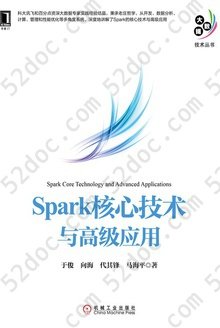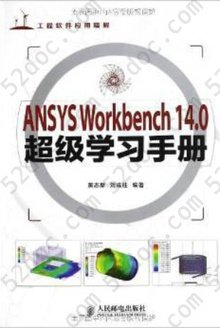注重体验与质量的电子书资源下载网站
分类于: 设计 其它
简介

目录
Part One The Basics of the Short Essay
1 Prewriting
Getting Started (or Soup-Can Labels Can Be Fascinating)
Selecting a Subject
Finding Your Essay's Purpose and Focus
Pump-Primer Techniques
After You've Found Your Focus
Practicing What You’ve Learned
Discovering Your Audience
How to Identify Your Readers
Practicing What You've Learned
Assignment
Keeping a Journal (Talking to Yourself Does Help)
Chapter 1 Summary
2 The Thesis Statement
What Is a Thesis? What Does a "Working Thesis" Do?
Can a "Working Thesis" Change?
Guidelines for Writing a Good Thesis
Avoiding Common Errors in Thesis Statements
Practicing What You've Learned
Assignment
Using the Essay Map
Practicing What You've Learned
Assignment
Chapter 2 Summary
3e Topic Sentence 50
Focusing Your Topic Sentence
Placing Your Topic Sentence
Practicing What You've Learned
Assignment
Applying What You've Learned to Your Writing
Paragraph Development
Paragraph Length
Practicing What You've Learned
Assignment
Applying What You've Learned to Your Writing
Paragraph Unity
Practicing What You've Learned
Applying What You've Learned to Your Writing
Paragraph Coherence
Practicing What You're Learned
Paragraph Sequence
Transitions between Paragraphs
Applying What You've Learned to Your Writing
Chapter 3 Summary
4 Beginnings and Endings
How to Write a Good Lead-in
Avoiding Errors in Lead-ins
Practicing What You've learned
Assignment
How to Write a Good Concluding Paragraph
Avoiding Errors in Conclusions
Practicing What You're Learned
Assignment
How to Write a Good Title
Practicing What You've learned
Assignment
Applying What You've Learned to Your Writing
Chapter 4 Summary
5 Drafting and Revising: Creative Thinking, Critical Thinking
What Is Revision?
When Does Revision Occur?
Myths about Revision
Can I Learn to Improve My Revision Skills?
Preparing to Draft some Time-Saving Hints
Additional Suggestions for Writers with Word Processors
Writing Centers, Computer Labs, and Computer Classrooms
A Revision Process for Your Drafts
I. Revising for Purpose, Thesis, and Audience
II. Revising for Ideas and Evidence
Ⅲ. Revising for Organization
IV. Revising for Clarity and Style
V. Editing for Errors
VI. Proofreading
A Final Checklist for Your Essay
Practicing What You've Learned
Benefiting from Revision Workshops
Practicing You're Learned
Assignment
Some Last Advice: How to Play with Your Mental Blocks
Chapter 5 Summary
6 Effective Sentences
7 Word Logic
8 The Reading-Writing Connection
Part Two Purposes, Modes, and Strategies
9 Exposition
10 Argumentation
11 Description
12 Narration
13 Writing Essays Using Multiple Strategies
Part Three Special Assignments
14 Writing a Paper Using Research
15 Writing in Class: Exams and "Response" Essays
16 Writing about Literature
17 Writing about Visual Arts
18 Writing about Film
19 Writing in the World of Work
Part Four A Concise Handbook
20 Major Errors in Grammar
21 A Concise Guide to Punctuation
22 A Concise Guide to Mechanics
List of Artworks
List of Advertisements
1 Prewriting
Getting Started (or Soup-Can Labels Can Be Fascinating)
Selecting a Subject
Finding Your Essay's Purpose and Focus
Pump-Primer Techniques
After You've Found Your Focus
Practicing What You’ve Learned
Discovering Your Audience
How to Identify Your Readers
Practicing What You've Learned
Assignment
Keeping a Journal (Talking to Yourself Does Help)
Chapter 1 Summary
2 The Thesis Statement
What Is a Thesis? What Does a "Working Thesis" Do?
Can a "Working Thesis" Change?
Guidelines for Writing a Good Thesis
Avoiding Common Errors in Thesis Statements
Practicing What You've Learned
Assignment
Using the Essay Map
Practicing What You've Learned
Assignment
Chapter 2 Summary
3e Topic Sentence 50
Focusing Your Topic Sentence
Placing Your Topic Sentence
Practicing What You've Learned
Assignment
Applying What You've Learned to Your Writing
Paragraph Development
Paragraph Length
Practicing What You've Learned
Assignment
Applying What You've Learned to Your Writing
Paragraph Unity
Practicing What You've Learned
Applying What You've Learned to Your Writing
Paragraph Coherence
Practicing What You're Learned
Paragraph Sequence
Transitions between Paragraphs
Applying What You've Learned to Your Writing
Chapter 3 Summary
4 Beginnings and Endings
How to Write a Good Lead-in
Avoiding Errors in Lead-ins
Practicing What You've learned
Assignment
How to Write a Good Concluding Paragraph
Avoiding Errors in Conclusions
Practicing What You're Learned
Assignment
How to Write a Good Title
Practicing What You've learned
Assignment
Applying What You've Learned to Your Writing
Chapter 4 Summary
5 Drafting and Revising: Creative Thinking, Critical Thinking
What Is Revision?
When Does Revision Occur?
Myths about Revision
Can I Learn to Improve My Revision Skills?
Preparing to Draft some Time-Saving Hints
Additional Suggestions for Writers with Word Processors
Writing Centers, Computer Labs, and Computer Classrooms
A Revision Process for Your Drafts
I. Revising for Purpose, Thesis, and Audience
II. Revising for Ideas and Evidence
Ⅲ. Revising for Organization
IV. Revising for Clarity and Style
V. Editing for Errors
VI. Proofreading
A Final Checklist for Your Essay
Practicing What You've Learned
Benefiting from Revision Workshops
Practicing You're Learned
Assignment
Some Last Advice: How to Play with Your Mental Blocks
Chapter 5 Summary
6 Effective Sentences
7 Word Logic
8 The Reading-Writing Connection
Part Two Purposes, Modes, and Strategies
9 Exposition
10 Argumentation
11 Description
12 Narration
13 Writing Essays Using Multiple Strategies
Part Three Special Assignments
14 Writing a Paper Using Research
15 Writing in Class: Exams and "Response" Essays
16 Writing about Literature
17 Writing about Visual Arts
18 Writing about Film
19 Writing in the World of Work
Part Four A Concise Handbook
20 Major Errors in Grammar
21 A Concise Guide to Punctuation
22 A Concise Guide to Mechanics
List of Artworks
List of Advertisements








